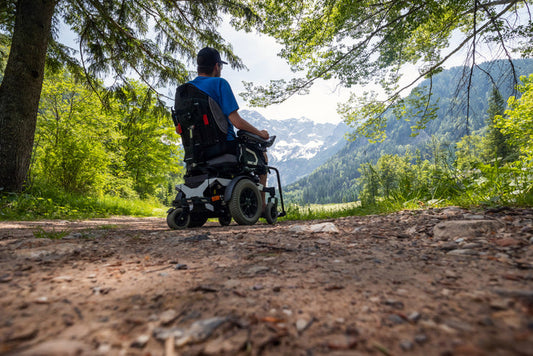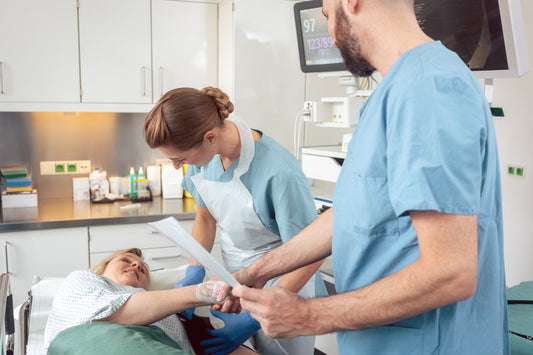
Can Antibiotics Cause Constipation?
When people think about antibiotics and digestion, diarrhea is usually the first side effect that comes to mind. But some patients notice the opposite problem: constipation during or after antibiotic treatment. While less common, antibiotic-related constipation is real and can disrupt daily life, especially for those already prone to bowel irregularity. Understanding why this happens can help you manage symptoms effectively and avoid complications. In this article, we’ll explore how antibiotics can sometimes slow the gut instead of speeding it up, which medications carry higher risks, and practical steps, including gentle, fast-acting remedies like a mini enema, to restore bowel comfort.
Common Side Effects: Why Diarrhea Gets More Attention
Antibiotic-associated diarrhea is a fairly common side effect of taking antibiotics, with studies showing it can affect anywhere from about 1 in 20 people to as many as 1 in 3. The main reason is that antibiotics don’t just kill the “bad” bacteria causing an infection — they also disrupt the helpful bacteria in your gut. Those good bacteria normally help digest food and produce substances that keep stools firm. When they’re wiped out, the balance in the gut changes, making it harder for the colon to absorb water, which can lead to loose stools.
Some antibiotics are more likely than others to cause diarrhea. For example, clindamycin, amoxicillin-clavulanate (often called Augmentin), and certain cephalosporins are well known to upset the gut’s bacterial balance. Others, like erythromycin, can cause diarrhea for a different reason: they stimulate the gut’s natural “motion sensors” (called motilin receptors) that speed up how quickly food and waste move through your system.
Given how common diarrhea is, constipation as a side effect can be overlooked. However, clinical reports and patient experiences show that some antibiotics, either through their unique effects on gut bacteria or on the enteric nervous system, can lead to slower bowel movements. While diarrhea may dominate the medical conversation, it is worth noting that constipation during antibiotic treatment can cause significant discomfort and may require different management strategies.
How Antibiotics May Cause Constipation
Antibiotics alter the gut microbiome, the diverse community of bacteria that influences digestion, immunity, and even mood. While this disruption often causes diarrhea, in some people it has the opposite effect.
One possible explanation is that antibiotics reduce populations of bacteria that produce short-chain fatty acids (SCFAs) like butyrate, which help regulate intestinal motility. A decrease in these compounds can slow down muscle contractions in the colon, leading to harder, less frequent stools.
Some antibiotics may also cause mineral depletion, particularly magnesium. Low magnesium levels can reduce smooth muscle activity in the gut, further slowing bowel transit. If a person is already slightly deficient due to diet or fluid loss from illness, antibiotics can push levels low enough to cause constipation.
Another factor is direct motility effects. Research suggests that certain antibiotics, such as neomycin and penicillin V, can influence the enteric (which means relating to or occurring in the intestines) nervous system, the “second brain” of the gut, in ways that slow down bowel movement. This is separate from their microbiome effects and may occur in sensitive individuals.
Finally, dehydration can play a role. Antibiotic treatment is often prescribed for infections that may cause fever, decreased appetite, or reduced fluid intake. Combined with changes in the microbiome, this lack of hydration can make stools drier and harder to pass.
These overlapping mechanisms help explain why constipation during antibiotic therapy, while uncommon, is both plausible and documented.
Which Antibiotics Can Cause Constipation & Their Risk Levels
Although constipation is less frequent than diarrhea, several antibiotics have documented associations with this side effect.
- Levofloxacin: Pooled clinical trial data show that about 4% of users discontinued the drug due to gastrointestinal issues, including constipation, nearly as common as diarrhea in this group.
- Piperacillin-tazobactam: Constipation is listed as a “common” GI side effect in prescribing information.
- Neomycin: Known for its strong microbiome impact and potential to affect motility in experimental studies.
- Penicillin V: Animal research shows possible direct effects on enteric nervous signaling, which could slow bowel movement.
Pediatric research from the Porto Pediatric Gastroenterology journal found constipation in about 8% of children receiving antibiotics, along with abdominal pain in roughly 9%. While adult data are more limited, scattered case reports and drug label information confirm constipation is a recognized though rare outcome.
Risk appears to vary based on the spectrum of the antibiotic, its absorption in the gut, and the patient’s baseline digestive health. Those with pre-existing slow transit or neurogenic bowel may be more vulnerable.
Remedies for Managing Constipation During Antibiotics
If constipation develops during antibiotic treatment, addressing it quickly can prevent discomfort and complications. For many, over-the-counter options provide relief, but not all work equally well or are suitable for sensitive systems.
One fast, effective option is a mini enema, such as Enemeez, which delivers a small amount of docusate sodium directly to the rectum. This softens stool and stimulates evacuation within minutes, without the harsh cramping that some enemas can cause. Because it works locally, it avoids interfering with your antibiotic absorption.
Another useful intervention includes the use of bulk-forming fibers such as psyllium, provided fluid intake is adequate.
Good bowel care involves staying hydrated, eating fiber-rich foods such as fruits, vegetables, and whole grains, and maintaining light activity to encourage gut motility. For those with chronic or neurogenic bowel conditions, sticking to a regular elimination schedule can help prevent worsening symptoms during antibiotic therapy.
Importantly, avoid overusing stimulant laxatives unless directed by a doctor, as these can lead to dependency or worsen cramping.
When to Seek Medical Advice
Most cases of antibiotic-associated constipation are mild and resolve once treatment ends. However, some situations warrant prompt medical attention.
You should contact your healthcare provider if constipation lasts more than three days without improvement, is accompanied by severe abdominal pain, vomiting, or bloating, or if you notice blood in your stool. In rare cases, constipation during antibiotics could signal more serious issues, such as intestinal obstruction or a side effect of an unrelated condition.
It is also important to watch for signs of Clostridioides difficile infection, or C. diff, which can occur after antibiotics. While C. diff usually causes diarrhea, early or atypical presentations can involve constipation.
People with pre-existing digestive disorders, such as irritable bowel syndrome (IBS) or neurogenic bowel, may need closer monitoring, as antibiotics can exacerbate underlying motility issues.
If symptoms are severe or persistent, your provider might adjust your antibiotic, recommend supportive therapies, or check for electrolyte imbalances.
Antibiotics are far more likely to cause diarrhea than constipation, but this less common side effect is both real and manageable. Changes to the microbiome, shifts in gut motility, dehydration, and mineral loss can all contribute. Recognizing the possibility means you can take early steps to stay comfortable during treatment.
For quick, targeted relief that works without irritating your system, a mini enema like Enemeez can help restore regularity in minutes. Pairing this with healthy hydration, diet, and activity can make your antibiotic course a lot more comfortable and keep your recovery on track.



